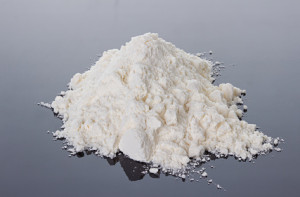
Contributor: Megan Wilson, BS, CADC, Addiction Specialist Coordinator, Timberline Knolls Residential Center
Cocaine is a stimulant that increases dopamine levels in the brain; it comes in the form of a white powder. Typically, the drug is snorted. There are other routes of administration, including but not limited to, being rubbed into the gums or placed in cigarettes.
Rise in Cocaine Addiction
There have been reported trends in cocaine use in teenagers and individuals in their 20s. The National Institute on Drug Abuse conducted a study that revealed that 2.3% of 12th graders have used cocaine in the past year [1]. This number increases to 5.4% of individuals between the ages of 18-25 [2].
There are several factors that contribute to the increased use of cocaine. Some college students may have abused stimulant medications in high school. This history of stimulant use could have led to their interest in cocaine in college. In 2014, a survey reported a decrease in stimulant medication abuse and an increase in cocaine use in college students [3].
This shift in substance use could also be related to the environment. The college atmosphere creates an increased opportunity to use cocaine due to ready availability.
Cocaine Contents – What is in it?
As with so many illegal drugs purchased on the street, what an individual “thinks” they are buying, is not always what they actually get; and there within lies the problem. The contents of cocaine can vary from dealer to dealer.

The pure drug could be cut or mixed with other powders to increase profit by diluting their product. These items could include benign items found around the house such as flour or cornstarch.
Also, it could be mixed with other substances such as dangerous stimulants or opiates to provide a more powerful product. The uncertainty of the contents could easily lead to an overdose. An individual may unintentionally use more cocaine than expected due to the inconsistency of potency.
Cocaine is a highly addictive substance that often creates catastrophic consequences. At the very least, if this drug is used long enough, it can destroy a person’s life, their career, relationships with friends and family as well as their physical and mental health. At the most, it will destroy the person. Death from an overdose is not uncommon.
Is Cocaine Addiction Treatment Needed?
The college years are intended to serve as a defining time in a young person’s life. Through experiences both in and out of the classroom, men and women more fully discover who they are and where their interests lie regarding a future profession. They may form life-long friendships, perhaps even meet the person they will ultimately marry. Cocaine use and its inevitable addiction are contrary to all of this.
If you suspect someone you care about is using cocaine, approach them with your concerns, understanding in advance that they might become defensive. Cocaine is a difficult addiction to break, but it is possible, usually requiring outpatient treatment at the very least.
 About the Author: Megan Wilson, BS, CADC has been working at Timberline Knolls since 2013. As the Addictions Specialist Coordinator, she facilitates psycho-educational group therapy, completes substance use assessments, and takes on the leadership role of the Addictions Specialist team. She also individually meets with residents to support a better understanding and application of 12 step.
About the Author: Megan Wilson, BS, CADC has been working at Timberline Knolls since 2013. As the Addictions Specialist Coordinator, she facilitates psycho-educational group therapy, completes substance use assessments, and takes on the leadership role of the Addictions Specialist team. She also individually meets with residents to support a better understanding and application of 12 step.
References:
[1]: National Institute of Drug Abuse (NIDA). Monitoring the Future Study: Trends in Prevalence of Various Drugs. https://www.drugabuse.gov/trends-statistics/monitoring-future/monitoring-future-study-trends-in-prevalence-various-drugs
[2]: National Institute of Drug Abuse (NIDA). National Survey of Drug Use and Health. https://www.drugabuse.gov/national-survey-drug-use-health
[3]: National Institute of Drug Abuse (NIDA). College and Young Adult Use Data Now Available Online. https://www.drugabuse.gov/news-events/news-releases/2016/05/college-young-adult-drug-use-data-now-available-online
The opinions and views of our guest contributors are shared to provide a broad perspective of addictions. These are not necessarily the views of Addiction Hope, but an effort to offer a discussion of various issues by different concerned individuals.
We at Addiction Hope understand that addictions result from a combination of environmental and genetic factors. If you or a loved one are suffering from an addiction, please know that there is hope for you, and seek immediate professional help.
Reviewed By: Jacquelyn Ekern, MS, LPC on May 2, 2017
Published on AddictionHope.com

